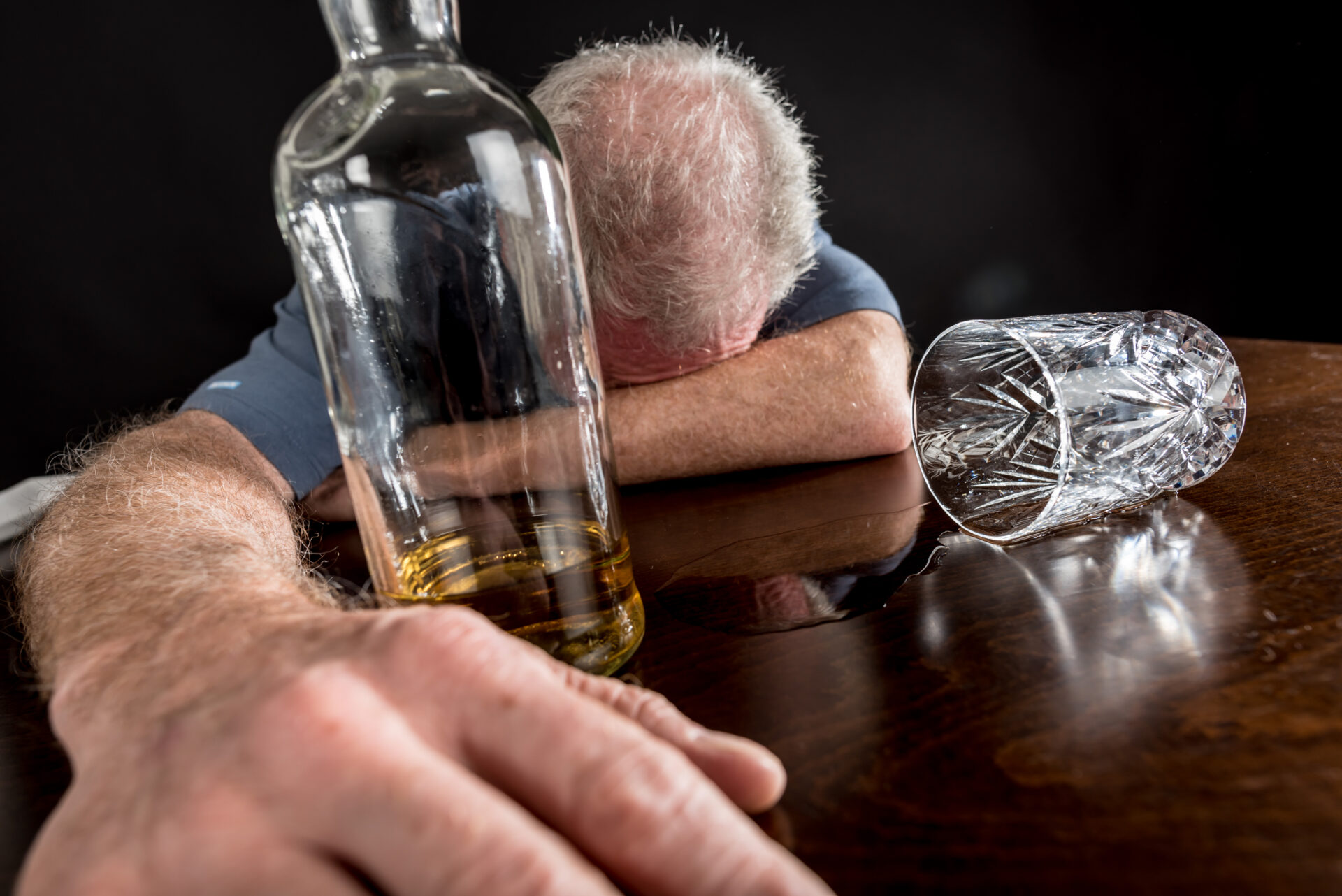Alcoholism
What is alcohol...
-use?
...if alcohol is consumed occasionally for pleasure.
-abuse?
if alcohol
...for relaxation, to increase activity
...in large quantities over a longer period of time
...in certain situations
...is drunk to quench thirst.
-dependence / -addiction?
...if the person concerned is no longer able to change their situation on their own initiative.
It is a gradual transition from alcohol abuse to addiction!
730,000 Austrians are at risk of alcoholism, which is about 10% of the Austrian population over the age of 15.
What is normal - what is too much?
Safe consumption of alcohol: 1/2 l beer/cider or 1/4 l wine/sparkling wine per day
Alcohol consumption hazardous to health:
for men: 3x 1/2 l beer/cider or 3x 1/4 l wine/sparkling wine per day
for women: 2x 1/2 l beer/cider or 2x 1/4 l wine/sparkling wine per day
If a person consumes alcohol in these quantities every day for more than 4-6 years, this leads to dependence and/or serious physical and mental illnesses.
How do you recognize that someone is at risk of addiction or is addicted?
The person at risk...
- drinks because it is tense, restless, stressed, insecure, etc.
- no longer feels well without a few glasses of alcohol a day
- needs more and more alcohol to achieve the same effect
- drinks secretly or alone, often in the morning
- increasingly avoids contact with other people, isolates himself
- has difficulty concentrating or remembering things, has memory lapses
- Suppresses discomfort and distracts from problems
- cannot give up drinking by himself
- becomes "different" due to alcohol consumption (irritable, aggressive, hypersensitive)
Looking the other way does not help to treat the disease!
Dealing with people at risk of addiction
- Talk about alcohol abuse!
- Don't make a secret of it!
- Make the consequences of alcohol abuse tangible!
- Stay consistent!
- Don't try to solve the other person's problems!
- Avoid endless discussions (e.g. about alcohol quantities)
- Motivate the person concerned to seek professional help!
Consequences of alcohol consumption
for the person
- First signs of poor hygiene and incipient neglect
- Stomach ulcers, inflammation of the pancreas, inflammation of the liver
- Sense of sight, balance and reaction time are impaired
- Delirium, epileptic seizure, delusion, etc.
- Damage to the unborn child caused by alcohol during pregnancy
.
Consequences of alcohol consumption
at the workplace
- Alcohol is involved in 30% of all accidents at work
- 5-10% alcoholics and those at risk of alcoholism per company
- longer periods of sick leave
- Wage and salary costs increased by 1.25 to 2.5% as a result
- 25% less ability to work and reduced quality of work
- Burden for colleagues and superiors
- Frequent job changes
Consequences of alcohol consumption
in road traffic
Even below the relevant limits, the effects of alcohol can impair the ability to drive. From 0.2 ‰ you already react more slowly and your vision is impaired.
From 0.5 ‰ there is a 3-fold risk of accidents, hearing and coordination of movement are impaired, people take risks more quickly and misjudge their speed.
At around 0.8 ‰, all reactions are significantly slower. From 1.1 ‰ there is an eightfold risk of an accident and absolute inability to drive.
Measures in the company
- Clarifying discussion between supervisor and affected person
- if there is no change, further discussions should be held with increasing publicity and increasing consequences
- clarify how to deal with acute alcoholization on duty
- Information and training for managers (e.g. conducting discussions) and coaching
The general rule is
- Talking to each other is a first step
- Time is precious - the longer the abuse lasts, the more difficult alcoholism is to treat
- Supervisors are not therapists, so it is essential to consult specialists
Say YES to the person, but NO to the addiction!
- Alcoholism is a disease, not a weakness of will
- The person affected must recognize for themselves that they can/must do something about their addiction


